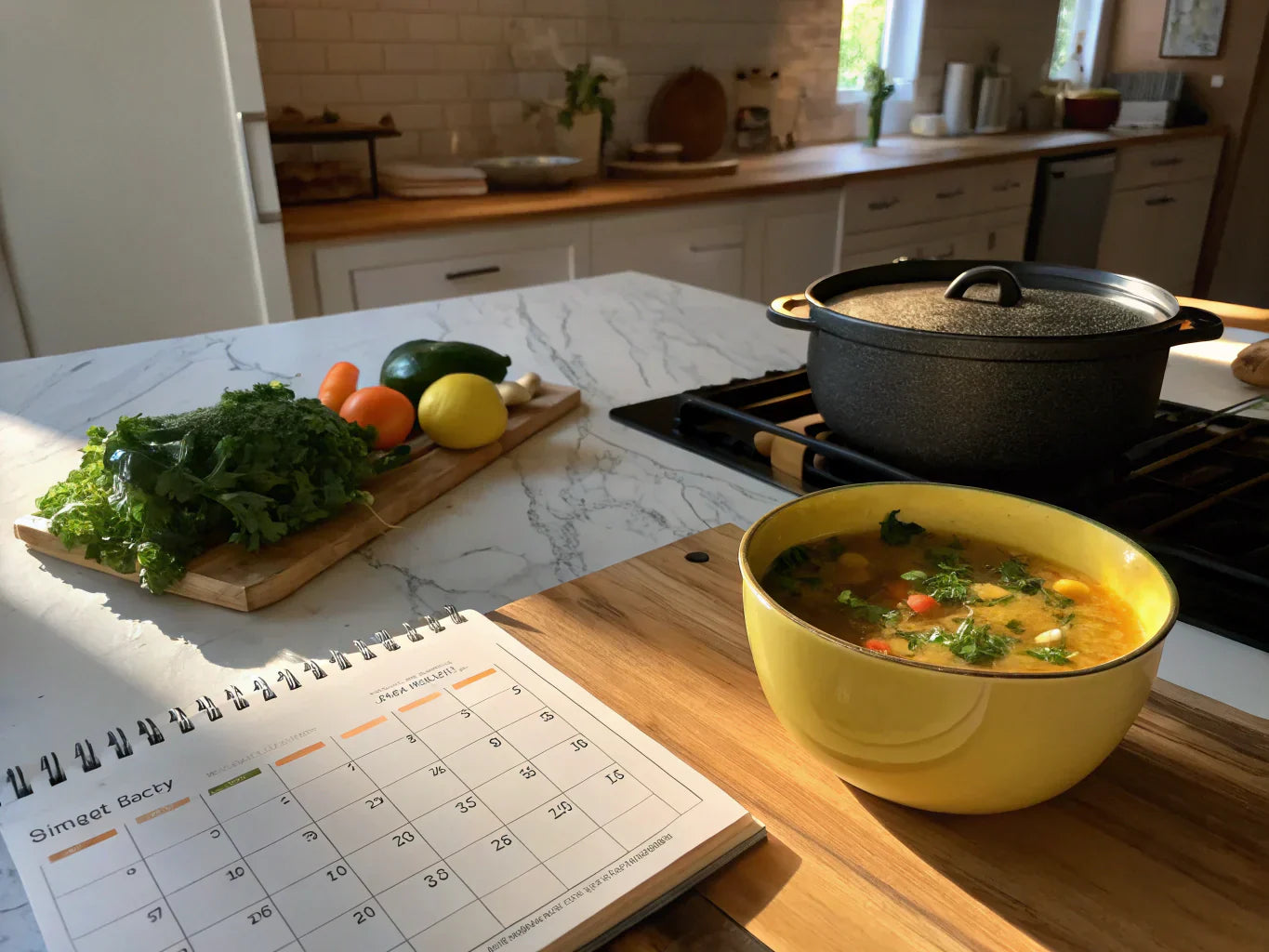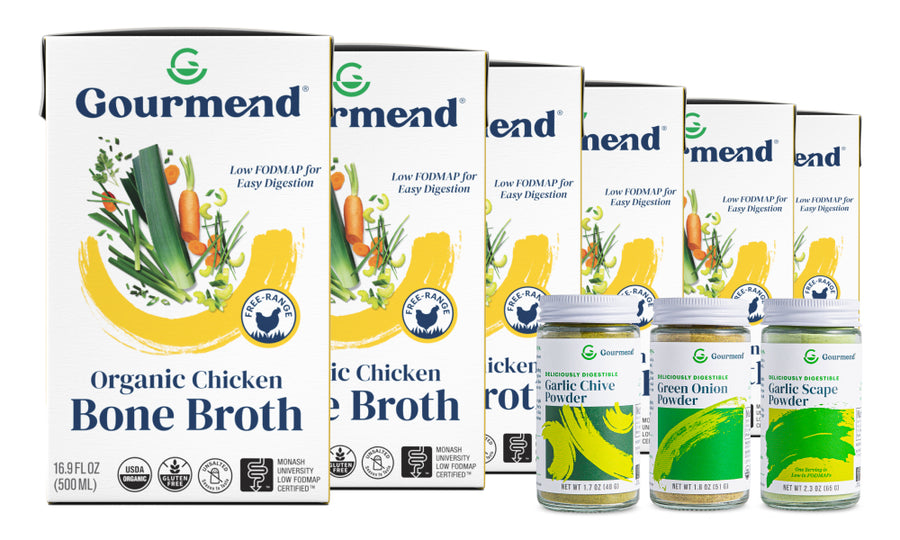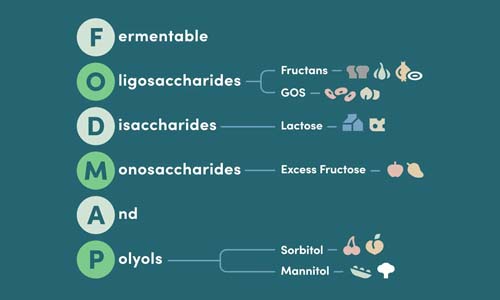Bone Broth Fast Guide: Master The 7-Day Protocol

A bone broth fast is a liquid-based fasting protocol where you consume only bone broth for a specific period, typically ranging from 24 hours to several days. Unlike water fasting, this approach provides essential nutrients while allowing your digestive system to rest and reset. With two-thirds of Americans experiencing digestive issues and nearly one billion people worldwide living with IBS, the bone broth fast has emerged as a gentler alternative to traditional fasting methods.
Key Takeaways
- A bone broth fast involves consuming only bone broth for a set period, typically from 24 hours to several days.
- This fasting method provides essential nutrients while allowing the digestive system to rest and reset.
- Bone broth fasting is a gentler alternative to traditional water fasting.
- It is especially relevant given that two-thirds of Americans experience digestive issues.
- Nearly one billion people worldwide live with IBS, making bone broth fasting a beneficial option for digestive health.
Table of Contents
- What is a Bone Broth Fast?
- The Nutritional Powerhouse Behind Bone Broth Fast
- Benefits of Bone Broth Fasting
- Choosing Quality Bone Broth for Your Fast
- How to Do a Bone Broth Fast
- Who Should Try a Bone Broth Fast
- Maximizing Your Bone Broth Fast Results
- Common Bone Broth Fast Mistakes to Avoid
- Bone Broth Fast Troubleshooting
- Long-Term Benefits and Maintenance
- Your Path to Bone Broth Fast Success
Think of it as giving your gut a spa day while still nourishing your body. You're not just surviving on water—you're flooding your system with collagen, amino acids, and minerals that actively support healing. The beauty lies in its simplicity: you drink warm, savory bone broth throughout the day instead of eating solid food.
What makes this approach particularly appealing is how it bridges the gap between complete food restriction and normal eating. You get the metabolic benefits of fasting without the harsh deprivation that makes other protocols difficult to sustain. For people dealing with digestive sensitivities, this gentler approach often feels more manageable than jumping straight into water fasting.
What is a Bone Broth Fast?
A bone broth fast involves consuming only bone broth—typically 5 to 8 cups daily—while avoiding all solid foods. This isn't just any broth from a can; we're talking about real bone broth that's been simmered for 12-24 hours to extract maximum nutrients from bones, cartilage, and connective tissue.
The protocol is straightforward: you space your broth consumption throughout the day, usually having a cup every 2-3 hours. You can also include herbal teas, water, and sometimes black coffee if your stomach tolerates it well. The key is maintaining consistent nutrition while giving your digestive system a break from processing solid food.
This approach differs significantly from other fasting methods. Water fasting provides no nutrients, which can leave you feeling depleted and make it harder to maintain energy levels. Dry fasting, where you avoid both food and water, is extremely restrictive and not recommended for most people. Intermittent fasting involves time-restricted eating windows but doesn't necessarily focus on gut healing.
The Nutritional Powerhouse Behind Bone Broth Fast

What makes bone broth so special isn't just its comforting warmth—it's the incredible array of nutrients that get extracted during the long simmering process. When bones are slowly cooked for hours, they release collagen, which breaks down into gelatin and provides amino acids that are often missing from our modern diets.
The star players include glycine, which supports liver detoxification and promotes better sleep; proline, which helps rebuild connective tissue; and glutamine, which acts as fuel for your intestinal cells. These aren't just fancy names—they're the building blocks your gut lining needs to repair itself.
You're also getting essential minerals like calcium, phosphorus, and magnesium in forms that your body can easily absorb. Unlike synthetic supplements, these minerals come naturally chelated with amino acids, making them more bioavailable. The trace amounts of glucosamine and chondroitin provide additional support for joint health.
Gut-Healing Compounds
The gelatin in bone broth acts like a gentle coating for your digestive tract. It helps seal the gaps in your intestinal lining—what researchers call increased intestinal permeability. For people dealing with IBS or other digestive issues, this protective effect can be particularly beneficial.
Glycine, one of the most abundant amino acids in bone broth, has anti-inflammatory properties and helps regulate your immune response. It also supports the production of glutathione, your body's master antioxidant, which helps with detoxification processes. Learn more about glycine's health benefits.
Benefits of Bone Broth Fasting
The benefits of a broth fast extend far beyond simple weight loss. While you'll likely shed some pounds, the real magic happens at the cellular level. Your digestive system gets a much-needed break from processing complex foods, allowing inflammation to calm down and your gut lining to begin repairs.
Many people report improved energy levels and mental clarity during a bone broth fast. This might seem counterintuitive—shouldn't eating less make you tired? But when your body isn't working overtime to digest heavy meals, it can redirect that energy toward healing and maintenance.
The amino acids in bone broth help stabilize blood sugar levels, which means you're less likely to experience the energy crashes that come with typical calorie restriction. The minerals help maintain proper electrolyte balance, preventing the fatigue and headaches that often accompany other fasting protocols.
Digestive System Reset
One of the most significant benefits is the digestive reset. When you stop eating solid food temporarily, you give your gut a chance to reduce inflammation and repair damaged tissue. The glutamine in bone broth specifically feeds the cells lining your intestines, supporting faster healing.
For people with IBS, this break from potentially triggering foods can help identify which foods cause problems. The low FODMAP nature of properly made bone broth means it's gentle on sensitive digestive systems while still providing essential nutrients. If you're interested in more low FODMAP meal ideas, check out our low FODMAP recipes blog.
Metabolic Benefits
Fasting triggers several metabolic changes that can be beneficial for long-term health. Your insulin levels drop, which allows your body to access stored fat for energy more efficiently. This metabolic flexibility—the ability to switch between burning glucose and fat—is associated with better overall health outcomes.
The process also stimulates autophagy, your body's cellular cleanup mechanism. Think of it as taking out the cellular trash—damaged proteins and organelles get recycled, making room for new, healthy cellular components. Read more about autophagy and fasting.
Choosing Quality Bone Broth for Your Fast

Not all bone broths are created equal, and the quality of your broth will directly impact your fasting experience. You want bone broth that's been made from grass-fed, organic bones and simmered long enough to extract maximum nutrients. The Gourmend Foods bone broths—both chicken and beef varieties—are crafted specifically with these principles in mind. Try our Bone Broth Sampler Bundle to experience both flavors and find your favorite for fasting.
Look for bone broth that gels when cooled, which indicates high collagen content. Our bone broths are made with chives and the green parts of scallions and leeks instead of onions, making them naturally low FODMAP and gentle on sensitive digestive systems. We also include nori seaweed and oyster mushrooms for natural umami flavor without relying on artificial additives.
Avoid products with "natural flavors," preservatives, or other additives that can trigger digestive symptoms. Clean-label products with organic ingredients ensure you're getting pure nutrition without hidden inflammatory compounds that could undermine your fasting goals.
How to Do a Bone Broth Fast
Starting a bone broth fast doesn't require complicated preparation, but a little planning goes a long way. Think of it like preparing for a gentle detox rather than a harsh deprivation protocol. The goal is to set yourself up for success while making the experience as comfortable as possible.
Begin by gradually reducing your food intake a day or two before starting. This helps your body adjust to consuming fewer calories and can minimize any initial discomfort. Focus on eating clean, whole foods and avoid processed items, excess sugar, and alcohol in the days leading up to your fast.
Stock up on high-quality bone broth—you'll need about 2-3 quarts per day depending on your chosen protocol. Having everything ready beforehand prevents the temptation to reach for other foods when hunger strikes. Also gather herbal teas, electrolyte supplements if needed, and any comfort items that help you relax. For a convenient option, try our Broth Lover Bundle to ensure you have plenty of nourishing broth on hand.
Daily Protocol Structure
Your typical day should include 5 to 8 cups of bone broth spaced evenly throughout your waking hours. Start with a warm cup first thing in the morning to kickstart your metabolism and provide immediate nourishment. Follow this with additional servings every 2-3 hours to maintain steady energy levels.
Between bone broth servings, you can drink herbal teas, plain water, and black coffee if your stomach handles it well. Avoid adding cream, sugar, or artificial sweeteners that could break your fast or trigger digestive symptoms. Green tea can be particularly beneficial due to its antioxidant properties and gentle caffeine content.
Timing and Duration Guidelines
Most people start with a 24-hour bone broth fast to test their tolerance and gauge how their body responds. This single-day approach provides many benefits while being manageable for beginners. You might begin after dinner one evening and continue until dinner the following day.
Extended fasts of 3-5 days can provide deeper benefits but should only be attempted by those with fasting experience or under professional guidance. For longer protocols, some people include one small, nutrient-dense meal per day alongside their bone broth consumption to maintain energy levels.
Who Should Try a Bone Broth Fast
Bone broth fasting can benefit a wide range of people, but it's particularly valuable for those dealing with digestive issues or seeking a gentler approach to metabolic reset. If you're managing IBS symptoms, dealing with food sensitivities, or recovering from illness, this protocol offers nutrition while giving your gut time to heal.
People transitioning to ketogenic or low-carb diets often find that a broth fast helps accelerate the metabolic shift while minimizing uncomfortable symptoms. The amino acids and electrolytes help maintain energy levels during this transition period, making the process more comfortable than jumping straight into strict carb restriction.
Those seeking to break unhealthy eating patterns or reset their relationship with food can also benefit significantly. The structured nature of consuming only bone broth helps break the cycle of mindless snacking while providing deep nourishment that satisfies on a cellular level.
Ideal Candidates
If you're someone who experiences regular bloating, gas, or digestive discomfort, a bone broth fast can provide the reset your system needs. The anti-inflammatory compounds help calm an overactive immune response in the gut, while the easily digestible nutrients support healing without adding stress. For those with sensitivities, our Low FODMAP Organic Beef Broth is a gentle and nourishing choice.
People with autoimmune conditions often report improvements in symptoms following bone broth fasting protocols. The glycine and other amino acids help modulate immune function and reduce systemic inflammation, though you should always consult with your healthcare provider before making significant dietary changes.
Important Precautions
While bone broth fasting is generally gentler than other fasting methods, it's not appropriate for everyone. Pregnant or breastfeeding women, people with eating disorders, and anyone taking medications that require food should avoid fasting protocols without medical supervision.
If you have diabetes or blood sugar regulation issues, work with your healthcare provider before attempting any fasting protocol. The same applies if you're dealing with severe stress, thyroid problems, or hormonal imbalances that could be exacerbated by calorie restriction.
Maximizing Your Bone Broth Fast Results
The quality of your bone broth makes an enormous difference in your fasting experience and results. Gourmend Foods bone broths are crafted from organic, grass-fed sources and simmered for optimal nutrient extraction. Our chicken and beef bone broths contain no artificial additives or high FODMAP ingredients that could trigger digestive symptoms during your fast. If you want to try both, consider our Gourmend Sampler for a variety of gut-friendly broths.
Temperature matters more than you might think. Warm bone broth is more satisfying and easier to digest than cold broth, plus the heat helps signal satiety to your brain. Keep your broth at a comfortable sipping temperature throughout the day, reheating as needed to maintain that comforting warmth.
Pay attention to your body's signals during the fast. Some people feel energized and clear-headed, while others may experience mild fatigue as their body adjusts. Both responses are normal, but severe symptoms like dizziness, extreme weakness, or nausea indicate you should break the fast and consult a healthcare provider.
Supporting Lifestyle Practices
Gentle movement like walking, yoga, or light stretching can actually enhance your fasting experience by promoting lymphatic drainage and maintaining energy flow. Avoid intense workouts that could stress your system when you're consuming fewer calories than usual.
Prioritize sleep and stress management during your fast. Your body does most of its healing and repair work during rest, so aim for 7-9 hours of quality sleep. Consider meditation, gentle breathing exercises, or other relaxation techniques to support the healing process.
Breaking the Fast Properly
How you end your bone broth fast is just as important as how you conduct it. Start with easily digestible foods like steamed vegetables, simple proteins, or soup with soft ingredients. Avoid jumping straight into heavy, processed, or high FODMAP foods that could shock your newly rested digestive system.
Continue incorporating bone broth into your regular routine even after the fast ends. Having a cup daily can help maintain the gut-healing benefits you've achieved and support ongoing digestive health. This consistency helps cement the positive changes rather than losing momentum once you return to solid foods. For more tips on healthy eating after your fast, explore our Learn blog section.
Common Bone Broth Fast Mistakes to Avoid

Even with the best intentions, many people make simple mistakes that can derail their bone broth fast experience. One of the biggest errors is choosing low-quality broth that lacks the nutrients and satisfaction needed to sustain you through the fasting period. Store-bought broths filled with artificial flavors, preservatives, and high FODMAP ingredients like onion and garlic can actually trigger digestive symptoms rather than heal them.
Another common mistake is drinking bone broth that's too cold or consuming it too quickly. Your digestive system works better when you sip warm broth slowly, allowing your body to register the nutrients and feel satisfied. Gulping down cold broth often leaves people feeling hungry and unsatisfied, making the fast much more difficult than necessary.
Don't make the error of pushing through severe discomfort or ignoring your body's warning signals. While some mild hunger or adjustment symptoms are normal, extreme fatigue, dizziness, or nausea indicate you should modify or end your fast. Remember, this is about healing, not punishment.
Hydration and Electrolyte Balance
Many people forget that bone broth fasting still requires additional water intake throughout the day. While bone broth provides significant hydration, you should continue drinking plain water and herbal teas to maintain optimal fluid balance. Dehydration can cause headaches, fatigue, and other symptoms that make fasting unnecessarily uncomfortable.
The mineral content in quality bone broth helps maintain electrolyte balance, but some people benefit from adding a pinch of high-quality sea salt to their broth or water. This is especially important if you're sweating more than usual or feeling lightheaded during your fast.
Bone Broth Fast Troubleshooting
If you're feeling hungrier than expected during your broth fast, it might be because you're not consuming enough throughout the day. Don't try to stretch your bone broth too thin—you need adequate nutrition to feel satisfied and maintain energy levels. Increase your intake to the higher end of the recommended range if needed.
Some people experience what's called "keto flu" symptoms during their first bone broth fast, especially if they're transitioning from a high-carb diet. This can include mild headaches, fatigue, or irritability as your body shifts into fat-burning mode. These symptoms typically resolve within 24-48 hours and can be minimized by ensuring adequate electrolyte intake.
Digestive changes are normal and usually positive during a bone broth fast. Many people notice reduced bloating and improved regularity, but some experience temporary changes in bowel movements. This is typically your digestive system adjusting to the liquid diet and should normalize as you continue. For more on managing digestive symptoms, visit our FODMAP blog.
Managing Social Situations
Planning your bone broth fast around social obligations makes the experience much more manageable. If you know you have dinner plans or social events, schedule your fast for quieter periods when you won't feel pressured to eat solid foods or explain your dietary choices repeatedly.
When you do encounter social situations during your fast, having a warm cup of bone broth can actually be quite social and comforting. Many people find that sipping broth while others eat helps them feel included without breaking their protocol.
Long-Term Benefits and Maintenance
The real magic of bone broth fasting often becomes apparent in the days and weeks following your fast. Many people report sustained improvements in energy levels, clearer skin, better sleep quality, and reduced digestive symptoms that continue long after they return to solid foods. These lasting benefits come from giving your digestive system a chance to reset and heal.
To maintain these benefits, consider incorporating regular bone broth consumption into your daily routine. Even one cup per day can help support ongoing gut health and provide the amino acids your body needs for tissue repair and maintenance. Gourmend Foods bone broths make this easy with their convenient packaging and clean, organic ingredients that won't trigger digestive sensitivities.
Some people find success with periodic bone broth fasting—perhaps once monthly or seasonally—as a way to reset their system and maintain the benefits they've achieved. This approach can be particularly helpful for managing chronic digestive issues or supporting your body during times of stress or illness.
Building Sustainable Habits
The insights you gain during your bone broth fast about hunger, satiety, and your relationship with food can inform healthier eating patterns long-term. Many people discover they don't need to eat as frequently as they thought, or that they feel better when they focus on nutrient-dense, easily digestible foods.
Use your fasting experience as a foundation for building other healthy habits. The discipline and mindfulness required for successful bone broth fasting often carries over into other areas of life, helping you make more conscious choices about food, stress management, and self-care.
Your Path to Bone Broth Fast Success
A well-executed bone broth fast can be a powerful tool for digestive healing, metabolic reset, and overall wellness. The key lies in choosing high-quality bone broth, listening to your body's signals, and approaching the process with patience and self-compassion. Remember that this isn't about deprivation—it's about providing your body with concentrated nutrition while giving your digestive system the rest it needs to heal and regenerate.
Whether you're dealing with digestive issues, seeking to break unhealthy eating patterns, or simply want to experience the benefits of this gentle fasting approach, bone broth fasting offers a sustainable and nourishing path forward. Start with shorter durations, pay attention to quality ingredients, and don't hesitate to modify the protocol to meet your individual needs. Your gut—and your overall health—will thank you for the investment in this time-tested healing practice.
Check out our Broth Lover Bundle
Frequently Asked Questions
Is fasting with bone broth good for you?
Fasting with bone broth can be beneficial as it provides essential nutrients like collagen, amino acids, and minerals while keeping calorie intake low. It supports gut health and may help reduce inflammation during the fast. However, individual responses vary, so it's important to listen to your body and consult a healthcare professional before starting.
How to do a 3 day bone broth fast?
To do a 3 day bone broth fast, consume only bone broth throughout the day, aiming for about 32 to 48 ounces daily to stay nourished and hydrated. Avoid any solid foods and other beverages except water, herbal teas, or black coffee if desired. Rest as needed and break the fast gently with light, easy-to-digest foods afterward.
How much weight can I lose on a bone broth fast?
Weight loss during a bone broth fast varies depending on factors like starting weight, metabolism, and activity level. Typically, people can lose between 2 to 5 pounds over three days, mostly from water weight and reduced calorie intake. Keep in mind that sustainable weight loss comes from long-term lifestyle changes rather than short fasts.
What happens if I only drink bone broth for a week?
Drinking only bone broth for a week can lead to a calorie deficit, potential weight loss, and a reduction in inflammation due to the broth's nutrients. However, prolonged restriction of solid foods may cause fatigue, nutrient imbalances, and muscle loss if not done carefully. It's important to monitor your body's response and consider consulting a healthcare provider before extending the fast.
What is the downside of bone broth?
While bone broth is nutrient-dense, potential downsides include high sodium content if commercially prepared, which can affect blood pressure. Some people might experience digestive discomfort or allergic reactions to certain ingredients. Additionally, bone broth alone doesn't provide all essential nutrients, so relying on it exclusively for long periods isn't recommended.
Does a bone broth fast put you in ketosis?
A bone broth fast can promote ketosis because it is very low in carbohydrates, allowing the body to shift from glucose to fat as its primary fuel source. However, the exact timing and level of ketosis depend on individual metabolism and how much broth (and its ingredients) you consume. Many people enter mild ketosis within a few days of fasting with bone broth.





